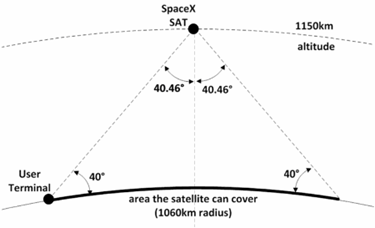SpaceX Plans To Launch Massive Satellite 'Constellation' For Global Broadband
By Jof Enriquez,
Follow me on Twitter @jofenriq

Elon Musk's aerospace company SpaceX is planning to launch by the end of the decade a 4,425-strong 'constellation' of low earth orbit (LEO) satellites to provide gigabit-speed broadband and communication services globally.
The company's application with the U.S. Federal Communications Commission (FCC) proposes to construct and launch 850-pound (386-kilogram), car-sized satellites into altitudes ranging from 715 miles (1,150 km) to 823 miles (1,325 km), which will operate at frequencies between 10GHz and 30GHz, in the Ku and Ka band.
In a two-phase launch, SpaceX will send up 1,600 satellites at one orbital altitude, then follow up with another 2,825 satellites placed in four shells at different altitudes, according to Business Insider.
"With deployment of the first 800 satellites, SpaceX will be able to provide widespread U.S. and international coverage for broadband services," SpaceX reportedly wrote in the filing. "Once fully optimized through the Final Deployment, the system will be able to provide high bandwidth (up to 1 Gbps per user), low latency broadband services for consumers and businesses in the U.S. and globally."
SpaceX's LEO satellite network will significantly reduce latency, a problem besetting current satellite Internet systems and causing delays in transmission of Internet data packets between Earth and satellites.
According to Ars Technica, SpaceX expects its own latencies to be between 25 and 35 milliseconds (ms), similar to the latencies measured for wired Internet services, and significantly faster than the 600-ms latencies of most current satellite Internet service providers (ISPs).
"Once fully deployed, the SpaceX system will pass over virtually all parts of the Earth's surface and therefore, in principle, have the ability to provide ubiquitous global service," added SpaceX.
The company also wrote that its satellite network will be highly robust, reliable, and adaptable, using the latest “phased array technology to dynamically steer a large pool of beams to focus capacity where it is needed. Optical inter-satellite links permit flexible routing of traffic on-orbit. Further, the constellation ensures that frequencies can be reused effectively across different satellites to enhance the flexibility and capacity and robustness of the overall system.”
The FCC filing did not disclose costs for the ambitious satellite network, but BBC reports that SpaceX founder Elon Musk said last year that the service will be "larger than anything that has been talked about to date," adding that it would take about $10 billion (£8 billion) to get it off the ground.
SpaceX experienced a rocket test failure in September, but the company reportedly is aiming to return to flight soon. Its ambitious satellite broadband service, however, will likely become fully operational by the end of decade.
It's not the only company attempting to build a satellite constellation to boost Internet speeds on Earth. OneWeb is planning to launch its fleet of 900 microsatellites into low Earth orbit beginning in 2018. Boeing and Inmarsat already have a trio of satellites in orbit, forming what is claimed to be the first high-speed Ka-band broadband network to span the world.
